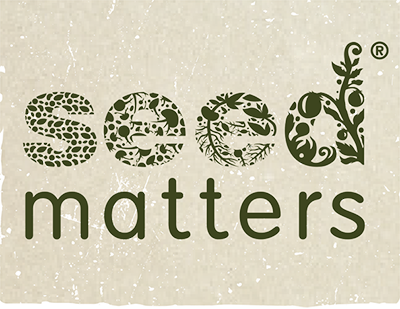
Organic CAN Feed the World
Proponents of industrial food systems frequently dismiss organic agriculture as a quaint practice for feeding small populations, but hardly capable of feeding the world. They contend that their approach is the only way to achieve high yields sufficient to feed the world’s 7 billion people.

However, advocates of industrial agriculture don’t like to remind you that conventional and biotech plant breeding focus on developing crops that need vast amounts of chemical fertilizers and toxic and temporary spray-on solutions to combat weeds, pests and diseases. To be profitable, their approach comes at an extraordinary cost to people and the planet.
Contrast conventional and biotech methods to plant breeding on organic farms. Organic plant breeding focuses on developing crops that:
· Grow in such a way that they out-compete weeds without the use of herbicides.
· Have root systems that are better at getting nutrients out of the soil, and so require less fertilizer.
· Expand seasonality—the ability to harvest earlier in spring or later in fall for fresh market vegetables—increasing the availability of local food.
And yes – organic plant breeding delivers higher yields, too.
Kevin Murphy, Ph.D., a wheat breeder at Washington State University, was an organic farmer before returning to school for his doctorate in plant breeding. Like most organic farmers, he primarily planted seed bred for conventional-chemical farming systems.
As a researcher, Dr. Murphy recognized that yields for some organic crops remained lower than their conventional counterparts. Given his experience as a farmer and his studies in plant breeding, Dr. Murphy questioned whether the yield issues were in part due to organic farmers using conventional varieties that were poorly adapted to organic growing conditions. After all, he had been taught that the first axiom of plant breeding is “breed in the environment of intended use,” and organic environments are very different than their conventional counterparts, where chemicals are added to soil and plants to boost production, and there are fewer weeds and pests because of chemicals.
After testing organic and conventional seed varieties in conventional and organic conditions across five farms for three seasons, Dr. Murphy published his findings in Field Crops Research. The results indicated that the highest-yielding seed varieties under organic growing conditions were not the highest-yielding in conventional conditions. This supported the theory that organic farmers needed breeding in organic systems.
What’s more, Dr. Murphy’s research also showed that breeding directly in organic systems resulted in considerably higher yielding crops—as high as 31 percent increased yield—than when similar selection for yield was done in conventional farming systems. His conclusion: Many organic farmers are “operating with the handicap of using (seed) cultivars better adapted to high-input, chemical intensive farming systems.”
Organic farmers know the importance of having the right seed – organically bred seed. In a national survey summarized in State of Organic Seed 2010, organic farmers pointed to the lack of organic seed availability and genetic traits, and 83 percent agreed that breeding for organic conditions was necessary for their overall success. Dr. Murphy’s research shows that when organic farmers get the organic seed they need, they can grow higher yielding crops healthier for people and the planet.